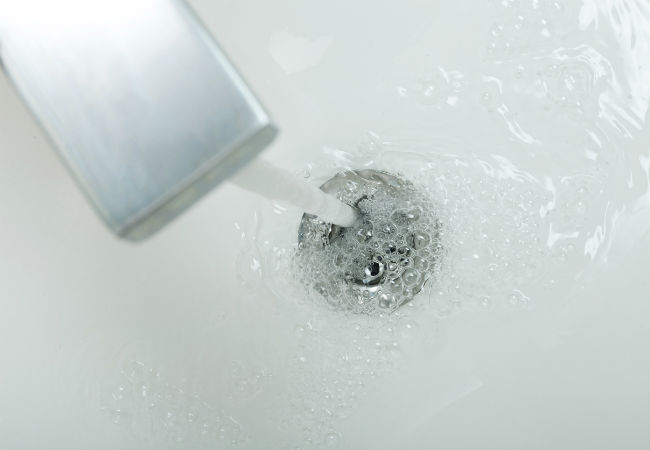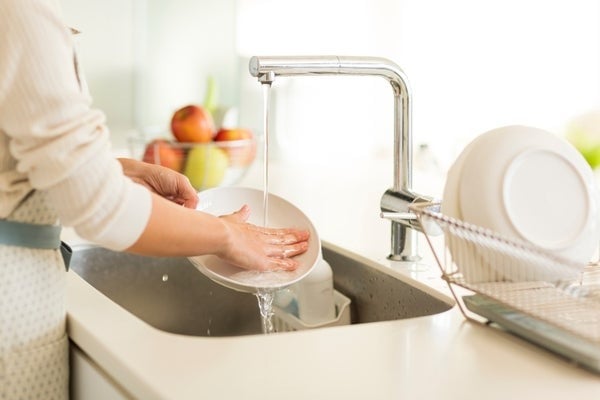We have unearthed the article about How to Fix a Slow Draining Sink down the page on the web and accepted it made sense to share it with you on my blog.

Intro
We've all existed: You're cleaning your teeth or cleaning your hands, and you notice the water merging in the sink. As opposed to rapidly swirling away, it lingers, turning your once-refreshing early morning routine right into a small overload scene. A slow-draining sink isn't simply aggravating; it's often an indication of bigger plumbing problems hiding under the surface area. The good news is that a lot of slow-draining sinks can be fixed with a little knowledge, a couple of basic tools, and some persistence. Prepared to tackle this project head-on? Allow's roll up our sleeves and dive right in.
Comprehending the Root Causes Of a Slow-Draining Sink
Before you begin poking around in your pipelines, it helps to recognize what may be causing the downturn. Understanding the root cause makes it less complicated to pick the ideal repair.
Common Offenders Behind Slow Drainage
So, what's clogging things up? Generally, it's a mix of daily debris-- believe hair, soap scum, tooth paste residue, and remaining food particles. Over time, these little bits accumulate and cling to the pipe walls, progressively tightening the flow and making it harder for water to go through. Sometimes, mineral deposits from difficult water can likewise contribute to the substance, producing the best storm for stubborn blockages.
When is it Time to Do Something About It?
If you see the water draining slower than normal, it's a great idea to intervene faster rather than later. Waiting also long can bring about complete blockages, undesirable odors, and even pipe damages. If the water takes more than a few secs to clear out after turning off the tap, consider it a red flag and prepare yourself to put on your do it yourself hat.
Tools and Products You'll Require
The right tools make all the distinction. Luckily, you will not need a completely equipped plumbing's van to get the job done.
Necessary Tools for Do It Yourself Services
A bettor is your go-to starting point. A small, sink-sized bettor creates suction that can displace small obstructions. For even more persistent obstructions, a drainpipe serpent (sometimes called a plumbing's auger) works wonders. A pair of gloves, a flashlight, and maybe a pair of protective goggles are likewise helpful.
Advised Cleansing Solutions
Moderate meal soap and hot water can aid break down oily accumulation. A mix of baking soft drink and vinegar is a reliable natural remedy, and enzymatic cleaners provide an even more green technique. Maintain chemical drain cleansers as a last option, as they can be harsh on your pipes.
Safety And Security First: Safety Measures and Preparations
Prior to you launch into unclogging mode, think about safety and security. You're taking care of possibly filthy water and particles, so slip on a pair of gloves. If you're making use of chemical cleaners, ensure the area is well-ventilated and follow the directions on the label.
Protective Gear and Work Space Setup
Lay down some old towels or rags around the sink area to catch dashes. Remove any type of items that could enter your way, like soap dispensers or toothbrush owners. Ensure you have good lights-- order a flashlight if needed.
Step-by-Step Guide to Dealing With a Slow-Draining Sink
Currently, allow's get into the nitty-gritty. This step-by-step process will certainly guide you with straightforward strategies to recover your sink's drainage.
Step 1: Get Rid Of and Clean the Stopper
Usually, the stopper (that tiny plug you push down to obstruct water) is the very first wrongdoer. Remove it thoroughly and wipe any hair or substance caught around its base. Wash it thoroughly before putting it back in place.
Step 2: Utilize a Bettor to Dislodge Debris
Got that plunger ready? Position it over the drainpipe and give it a few firm pumps. The idea is to create suction that can loosen up any blockage. If you see bits of particles drifting up, you get on the right track.
Action 3: Try a Drain Snake or Cable Hanger
If the plunger doesn't do the trick, it's time to bring out the drainpipe snake. Gently feed it into the drainpipe and twist as you go. You may feel some resistance-- that's most likely the clog. Keep turning and drawing up until you eliminate the obstruction. If you do not have a drain snake, a straightened cord hanger can operate in a pinch.
Tip 4: Apply a DIY Drainpipe Cleaner
An all-natural cleaner made from baking soft drink and vinegar can break down recurring crud. Pour half a cup of cooking soda into the drainpipe, complied with by half a mug of vinegar. Allow it fizz for around 15 mins, after that flush with hot water. This chemical reaction often does wonders for minor blockages.
Tip 5: Rebuild and Test the Sink
Put everything back with each other and run the faucet. Does the water now swirl down the drain at a reputable speed? If yes, give on your own a pat on the back. If not, don't despair-- there are still a few even more dress up your sleeve.
Different Methods for Stubborn Clogs
Not all clogs are created equal. If your sink still refuses to work together, think about these alternate remedies.
Baking Soda and Vinegar Technique
We already touched on this, but it's worth noting again. This gentle, environmentally friendly approach is safer than chemical cleansers and usually rather reliable.
Enzymatic Drainpipe Cleaners
Enzyme-based cleansers make use of natural germs to absorb organic matter. They're an exceptional selection if you're wanting to prevent extreme chemicals. Simply remember, they may take a bit longer to work their magic.
Chemical Drain Cleansers: Pros and Cons
Chemical cleansers can blow up through difficult blockages quick, however they're not without drawbacks. They can generate heat and fumes, damages pipelines if made use of exceedingly, and pose environmental dangers. Use them moderately, and always comply with the instructions meticulously.
Preventive Measures to Keep Your Sink Flowing
Prevention is the best treatment. By taking on a couple of easy routines, you can maintain your sink from reducing in the first place.
Routine Cleansing Habits
Clean down the sink container and fixture area consistently. Eliminate hair or food fragments before they have a chance to wash down the drainpipe.
Staying Clear Of Damaging Substances Down The Tubes
Reconsider prior to dumping coffee grounds, grease, or coarse vegetable scraps down the sink. These perpetrators hold on to pipeline walls, creating clogs gradually.
Regular Maintenance Checks
Arrange a fast monthly examination. Run hot water via the sink for a few minutes, taking notice of the flow. If it seems slow, act quickly before it ends up being a full-blown blockage.
When to Call an Expert Plumbing
Occasionally, regardless of how tough you try, that block simply won't budge. That's when it's time to generate the pros.
Indications That Indicate an Extra Significant Issue
If your sink drains gradually regardless of several efforts, or if you discover water backing up in other fixtures (like your shower or commode), you may have an extra serious pipes issue prowling deeper in the system.
Balancing Do It Yourself Initiatives with Expert Help
While DIY can conserve you cash and supply a sense of success, there's no shame in calling a professional. A professional plumbing can assess your whole pipes configuration, ensuring there's no underlying damages or long-term trouble that might cost you extra in the future.
Contrasting Costs and Long-Term Solutions
Before deciding, consider the big picture. An affordable, quick fix could resolve the issue briefly, however investing in a much more long-term solution might conserve you money and anxiety in the future.
Weighing the Expenditures of Do It Yourself vs. Specialist Fixes
DIY solutions commonly set you back bit more than the rate of a bettor or a container of cooking soda. Expert solutions, on the other hand, come with a cost but may prevent repeated concerns and costly repair work later.
Buying Quality Fixtures and Upgrades
If your sink's design contributes to constant clogs, it may be worth upgrading to higher-quality fixtures or altering the plumbing design. Consider this an investment in your house's capability and comfort.
Final thought
A slow-draining sink can feel like a small irritation, but it's commonly an indicator that your pipes requires a little tender loving care. By comprehending the origin, employing the right tools and strategies, and devoting to simple safety nets, you can maintain your sink streaming freely. And when all else falls short, never ever wait to hire an expert-- your home's plumbing is worth the investment in care and upkeep.
Three Common Ways to Fix a Slow Drain
Baking Soda Method
Boil a full pot of water. Measure out cup of baking soda and pour it down the drain. Then take cup of the magical cleansing substance known as white vinegar and drop that down there too. Allow the mixture to fizz in the drain for five minutes as the vinegar and baking soda combine. Now dump in that whole pot of boiling water. This combination of cleaning substances should clear out anything that is causing your sink to drain slowly. If it doesn t...
Zip-It
If the baking soda method doesn t clear out your drain, it may be because a significant amount of hair and/or other debris has collected there and you need to remove it. Purchase a Zip-It tool at any home improvement or hardware store and insert it into your drain. It will catch any collected hair or debris that s blocking the flow of water. Pull it out. If it s got a big clump of hair, etc. on the end, you ve probably got your culprit.
Drain Cleaner
If these methods don t work, there is the standard drain cleaner that you can also buy in a hardware store or even your local grocery store. It s better if you can use a household solution, but these drain cleaners often work in a pinch. They re very simple to use. You generally just dump them in your drain and wait. If even this method is not effective, it may be time to call the plumber.
https://www.mrrooter.com/oneida/about-us/blog/2017/july/three-common-ways-to-fix-a-slow-drain/

Hopefully you liked our piece about 7 Ways To Fix A Slow-Draining Sink Before You Call A Plumber. Thanks a ton for taking time to read through our piece. Loved our content? Please quickly share it. Help someone else find it. Thanks for going through it.
Request Appointment